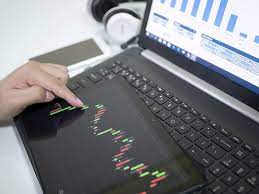With the widespread adoption of online trading, Contract for Difference (CFD) trading has been gaining popularity among traders globally. However, many traders are often unsure about how to trade the market, and that’s where CFD brokers come in. CFD brokers act as intermediaries between traders and financial institutions, ensuring that trades are executed effectively and efficiently. This article examines what cfd broker do, how they work, and why you need a broker in the CFD market.
CFD Brokers Explained
CFD brokers are companies that provide traders with access to various financial markets, including forex, stocks, indices, and commodities. These brokers provide a trading platform, giving traders an opportunity to execute trades using various instruments, including leverage. CFD brokers earn their income through spreads, commissions, or a combination of both.
How CFD Brokers Work
CFD brokers operate as intermediaries between traders and financial institutions. They provide traders with access to various trading instruments, research, news, and technical analysis tools. These brokers also provide traders with leverage, allowing them to take larger positions in the market than what they would have with their capital alone.
When a trader executes a trade, the CFD broker matches the trader’s order with a financial institution that has the corresponding order and executes the trade. The broker charges the trader a fee for the service, often in the form of a spread or commission.
Why You Need a CFD Broker
CFD brokers provide retail traders, particularly beginners, with an opportunity to enter the market and make money without having vast sums of capital. CFD trading provides traders with access to various markets and instruments, making it a suitable market to trade for those looking to diversify their investments.
CFD brokers also provide traders with various trading tools such as charting software, technical indicators, and news feeds, useful for making informed trading decisions. Additionally, many CFD brokers offer educational resources, including webinars, training videos, and e-books to help traders understand the markets better.
How to Choose a CFD Broker
With so many CFD brokers in the market, it can be hard to choose the right one. Here are some factors to consider when choosing a broker:
Trading Instruments – Choose a broker that offers the trading instruments you are interested in.
Customer Support – Look for a broker that offers responsive and helpful customer support.
Risks of CFD Trading
Even though CFD trading provides traders with several benefits, including access to various markets and instruments, it also comes with risks. One of the risks of CFD trading is the use of leverage, which magnifies trading losses. Traders need to understand the risks involved in trading CFDs and have a proper risk management strategy in place.
Conclusion:
In conclusion, CFD brokers play a crucial role in connecting traders to financial markets. These brokers provide traders with access to various trading instruments, research, news, and technical analysis tools. Choosing the right broker is essential as it affects your trading experience, fees, and expertise in the market. Always ensure you understand the risks involved in CFD trading, and have a proper risk management strategy in place before commencing.



